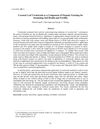 May 2024 in “Journal of functional foods”
May 2024 in “Journal of functional foods” Coffee bean residue extract helps hair growth by activating cell processes.
[object Object]  359 citations,
September 2017 in “European Journal of Epidemiology”
359 citations,
September 2017 in “European Journal of Epidemiology” The Rotterdam Study updated findings on elderly health, focusing on heart disease, genetics, lifestyle effects, and disease understanding.
 336 citations,
August 2015 in “European Journal of Epidemiology”
336 citations,
August 2015 in “European Journal of Epidemiology” The Rotterdam Study found risk factors for elderly diseases, links between lifestyle and genetics with health conditions, and aimed to explore new areas like DNA methylation and sensory input effects on brain function.
 11 citations,
December 2020 in “Notulae botanicae Horti Agrobotanici Cluj-Napoca”
11 citations,
December 2020 in “Notulae botanicae Horti Agrobotanici Cluj-Napoca” Mycorrhizal fungi and shading improve tea plant growth and nutrient uptake by changing hormone levels and gene expression.
 7 citations,
July 2018 in “International Journal of Applied Pharmaceutics”
7 citations,
July 2018 in “International Journal of Applied Pharmaceutics” Chitosan nanoparticles are promising for sustained caffeine delivery through the skin.

L-PGDS has specific binding sites for its functions and could help in drug delivery system design.
4 citations,
March 2023 in “Molecules/Molecules online/Molecules annual” Gallic acid and ferulic acid can be sustainably extracted for hair supplements with high efficiency and stability.
August 2024 in “Cosmetics” Peanut callus extract helps grow hair and prevent hair loss.
October 2014 in “The journal of investigative dermatology/Journal of investigative dermatology” The conference concluded with plans for joint research into children's skin conditions and emphasized the importance of collaboration and patient-focused research.
 January 2017 in “Journal of Investigative Dermatology Symposium Proceedings”
January 2017 in “Journal of Investigative Dermatology Symposium Proceedings” The 2015 Hair Research Congress concluded that stem cells, maraviroc, and simvastatin could potentially treat Alopecia Areata, topical minoxidil, finasteride, and steroids could treat Frontal Fibrosing Alopecia, and PTGDR2 antagonists could also treat alopecia. They also found that low-level light therapy could help with hair loss, a robotic device could assist in hair extraction, and nutrition could aid hair growth. They suggested that Alopecia Areata is an inflammatory disorder, not a single disease, indicating a need for personalized treatments.
 32 citations,
January 2017 in “Orphanet journal of rare diseases”
32 citations,
January 2017 in “Orphanet journal of rare diseases” FOXN1 gene mutations cause a rare, severe immune disease treatable with cell or tissue transplants.
 April 2024 in “Journal of cancer research and clinical oncology”
April 2024 in “Journal of cancer research and clinical oncology” Tissue-derived extracellular vesicles are crucial for cancer diagnosis, prognosis, and treatment.
 March 2024 in “Frontiers in genetics”
March 2024 in “Frontiers in genetics” Different types of fibroblasts play specific roles in wound healing and cancer, which could help improve treatments.
 April 2012 in “CORD. Coconut research & development/CORD”
April 2012 in “CORD. Coconut research & development/CORD” Coconut leaf vermiwash improves soil health and crop yields in organic farming.
44 citations,
February 2023 in “Cell” Fingerprints form uniquely before birth due to specific genetic pathways and local signals.
 40 citations,
November 2019 in “Frontiers in Endocrinology”
40 citations,
November 2019 in “Frontiers in Endocrinology” Metabolic Syndrome is linked to several skin conditions, and stem cell therapy might help treat them.
 11 citations,
October 2021 in “Frontiers in Cell and Developmental Biology”
11 citations,
October 2021 in “Frontiers in Cell and Developmental Biology” Non-coding RNAs are important for hair growth and could lead to new hair loss treatments, but more research is needed.
 4 citations,
October 2022 in “Microbial Cell Factories”
4 citations,
October 2022 in “Microbial Cell Factories” Certain bacteria from the Citrullus colocynthis plant may be a new source of antibiotics to fight drug-resistant diseases.
 1 citations,
January 2023 in “Metabolites”
1 citations,
January 2023 in “Metabolites” Changes in gut bacteria can contribute to the development of Polycystic Ovary Syndrome (PCOS), affecting metabolism, immunity, and causing inflammation. Treatments may involve adjusting these factors.
 8 citations,
June 2022 in “Cosmetics”
8 citations,
June 2022 in “Cosmetics” Coffee berry extract may help slow skin aging and prevent hair loss.
[object Object]  3 citations,
January 2023 in “International Journal of Cosmetic Science”
3 citations,
January 2023 in “International Journal of Cosmetic Science” Coffee and its by-products are promising for skin health benefits in cosmetics and help reduce environmental impact.
January 2021 in “AIP conference proceedings” A hair serum made from coffee by-products can promote hair growth and is safe, but needs less stickiness.
 October 2018 in “IOP conference series. Materials science and engineering”
October 2018 in “IOP conference series. Materials science and engineering” Coffee residue extract significantly boosts hair growth.
1 citations,
March 2022 in “Protection convergence” Fermented green coffee beans may be good for scalp and hair health cosmetics.
 July 2023 in “International journal of research publications”
July 2023 in “International journal of research publications” Green coffee bean extract didn't grow hair but reduced a hair loss-related enzyme in rats.
December 2023 in “Asian journal of beauty & cosmetology”  August 2024 in “Cosmetics”
August 2024 in “Cosmetics” Caffeine is beneficial for skin and hair treatments but needs better delivery methods to penetrate deeper skin layers.
 March 2024 in “Daehan budongsan hakoeji/Daehan bu'dongsan haghoeji”
March 2024 in “Daehan budongsan hakoeji/Daehan bu'dongsan haghoeji” Different factors like age, size, and location of subway stations affect sales of hair salons, coffee shops, and convenience stores in Seoul differently.
 2 citations,
January 2012 in “International Journal of Trichology”
2 citations,
January 2012 in “International Journal of Trichology” Coffee and tea might help hair growth in balding individuals, but side effects and alternative uses are being considered.
 January 2011 in “Healthcare Informatics Research”
January 2011 in “Healthcare Informatics Research” Hair loss is significantly linked to symptoms like dry hair, scalp issues, addiction to tobacco or coffee, anxiety, and digestive problems.























